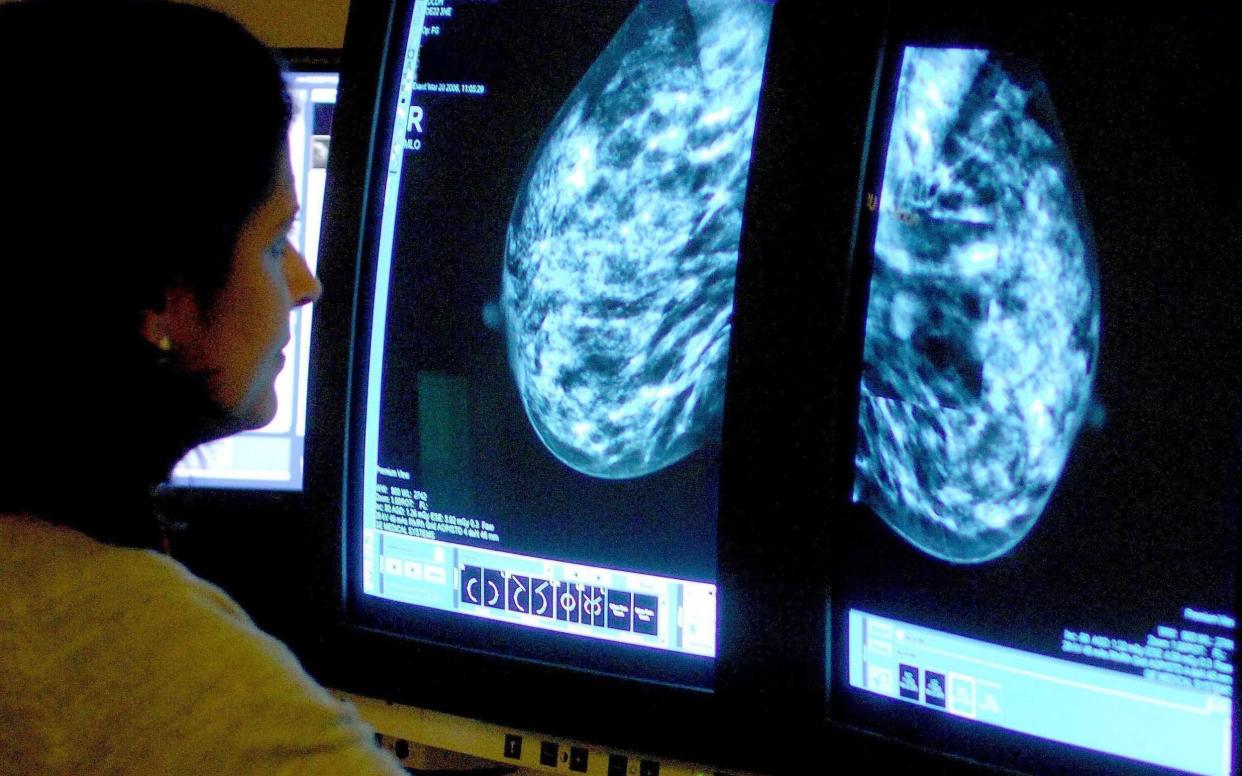One in four cancer patients suffers delays being diagnosed, study finds

One in four British cancer patients are suffering delays in diagnosis which could cost lives, a major study has found.
The research by Cancer Research UK found that long waits for tests and results after seeing a GP were the chief factor.
Experts warned that half of patients who suffered an avoidable delay ended up waiting at least two months longer than those given a prompt diagnosis.
The charity said GPs were “working in the dark” amid a staffing crisis in testing services, leaving too many patients waiting months before they could start treatment.
The research by Cancer Research UK looked at all 14,300 patients in England diagnosed with cancer in one year.
It found that nearly 3,400 patients experienced a delay that could have been avoided.
Half of these patients waited around two months longer to be diagnosed compared with those who didn’t have an avoidable delay.
The Government has promised cancer patients a diagnosis or all clear within a month by April 2020.
However, existing targets to start treatment within two months have not been met for more than five years.

Sara Hiom, Cancer Research UK’s director of early diagnosis, called on the next Government to urgently increase the NHS workforce.
She said: “While NHS doctors and nurses are doing everything they can to see patients quickly, the NHS is experiencing a staffing crisis. There simply aren’t enough people in the NHS to read scans or report tests swiftly.”
Dr Richard Roope, the charity’s GP expert, said: "GPs are working hard across the UK to make sure that patients are diagnosed quickly by referring more people earlier for tests. But we see patients with a huge variety of symptoms, often non-specific ones, and it can be difficult to decide when to check for cancer.
"Being a GP can be like working in the dark, with limited access to diagnostics, and sometimes we look back and think we could have done things differently."
The study of patients diagnosed in 2014 found 13 per cent of avoidable delays happened before the patient saw their GP, 49 per cent while the patient was being assessed by their GP, with 38 per cent occuring after referral to hospital.
Overall, across surgeries and hospitals, long waiting times for tests were responsible for a quarter of all avoidable delays.
One in 10 diagnostic posts are vacant in the UK.
More than 363,000 people are diagnosed with cancer each year in the UK. Forecasts suggest this will increase to over 500,000 by 2035 - one person every minute.
The charity urged patients with persistent symptoms or changes such as weight loss, bleeding, pain or a new lump, to book an appointment to see their GP.
An NHS spokeswoman said: "This report is based on data from 2014 and does not reflect significant improvements in care and treatment, such as a lowering in the threshold at which GPs refer patients for a cancer test, that have happened in the five years since.
"The NHS carried out 2.2 million checks last year, the most ever, and research released just last week shows that cancer survival is at a record high."
The study is published in the journal Cancer Epidemiology.
Professor Martin Marshall, chairman of the Royal College of GPs, said almost four in five of all cancer cases are now referred after no more than two consultations.
"GPs have to balance the risk of not referring a patient with that of over-referring, which can cause unnecessary concern for patients and risks overloading specialist services," he said.
"The College has been calling for many years for GPs to have better access to diagnostic tests in the community - and the appropriate training to use them - so that our decisions to refer can be better informed, and in turn ease pressures elsewhere in the health service.”
Health Secretary Matt Hancock said: “Cancer survival is the highest on record. But we want to do more and so have invested in 200 new scanners across the country to ensure even more people survive cancer.”
“And a Conservative majority government will deliver 6,000 more GPs and 50,000 more nurses, and create 50 million more GP appointments a year to ensure everyone gets the care and treatment they need."


